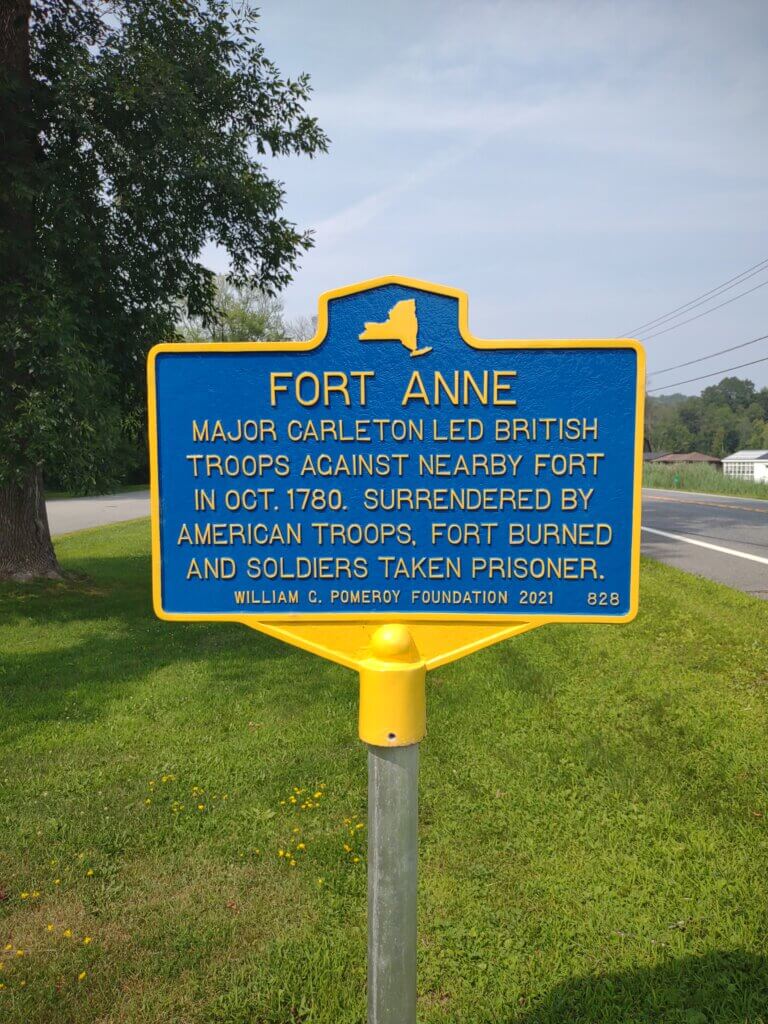FORT ANNE
- Program
- Subject
- Location
- Lat/Long
- Grant Recipient
-
NYS Historic
-
Event
- 6854 US-4, Fort Ann, NY 12827, USA
- 43.4191667, -73.486388888889
-
Washington County Historical Society
FORT ANNE
Inscription
FORT ANNEMAJOR CARLETON LED BRITISH
TROOPS AGAINST NEARBY FORT
IN OCT. 1780. SURRENDERED BY
AMERICAN TROOPS, FORT BURNED
AND SOLDIERS TAKEN PRISONER.
WILLIAM G. POMEROY FOUNDATION 2021
One of many forts in what was considered “the Northern Frontiers,” Fort Anne was strategically located near Lake George and other navigable waterways. In October 1780, Major Carleton led a campaign of British forces through this region, destroying forts, supplies, and residences. Outnumbered and ill-prepared, American soldiers surrendered Fort Anne and were taken prisoner. In a letter dated October 16, 1780, Major Carleton described his capture of the fort:
“When I came to within five miles of Fort Anne I sent forward three Indians and two white men, with orders to go first to the Fort in order if possible to learn whether or not our approach had been discovered…attempting the surprise of the Fort as soon as they opened their gates in the morning. I ordered that no fire should be made and the most profound silence to be observed…I ordered it to be set fire and the stock destroyed.”
Philip Schuyler related the extent of the recent British incursion in his correspondence with George Washington on October 19, 1780:
“Major Carlton [sic] as you will have heard has been down to the vicinity of this place at the head of Eight hundred British about two hundred Inlisted tories [sic] and as many Indians. Fort Ann and Fort George fell into his hands, he burnt Kings & Queens borough townships and the north part of this district to within five miles of my house…”
Reduced to ash in the skirmish, Fort Anne (or Ann) once stood near this site in the present-day Town of Fort Ann, NY. While the fort is believed to have been named in honor of Queen Anne, local tradition asserts that the “e” was later removed from the town name as either a sign of patriotism, a simple spelling error, or in reference to an early resident.


